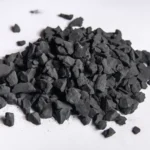The mean corpuscular hemoglobin (MCH) is an important blood test that measures the average amount of hemoglobin inside a single red blood cell. Tracking MCH levels over time can provide insight into the cause of some anemias and potentially indicate other underlying health conditions.
MCH Blood Test
Below are 5 key facts to know about the MCH blood test.
Indicates Iron Deficiency and Anemia
One of the most common reasons doctors order an MCH test is to check for iron deficiency anemia. With this condition, the body lacks sufficient iron to produce normal amounts of hemoglobin. Since hemoglobin uses iron to transport oxygen, low iron leads to abnormally small red blood cells containing less hemoglobin than normal. The MCH directly measures this hemoglobin concentration per cell, allowing doctors to catch iron deficiency before it progresses to full blown anemia.
Lowered by Vitamin Deficiencies
Not getting enough of these vitamins over time impairs the body’s ability to manufacture full-sized and hemoglobin-rich red blood cells. Doctors may order folate and B12 blood tests in conjunction with the MCH test to rule out or confirm deficiencies.
Elevated in Some Genetic Conditions
Some genetic disorders that affect hemoglobin production and red blood cell development can increase MCH levels. One example is a group of inherited blood disorders called thalassemias. These disable the normal regulation of hemoglobin synthesis, allowing excessive amounts of hemoglobin to accumulate in red blood cells. A high MCH can therefore help screen for thalassemias or other abnormalities of hemoglobin regulation.
Part of the Complete Blood Count Panel
The MCH blood test is almost always ordered as part of a complete blood count (CBC) panel. The CBC provides an overview of all the cellular components of blood. In addition to the MCH, it includes: hematocrit, hemoglobin level, red and white blood cell counts, red blood cell indices like MCV and RDW, and platelet count. Reviewing all these CBC components together allows for an integrated interpretation of a patient’s blood health status.
Reference Range Varies With Age and Sex
When interpreting MCH levels, doctors compare the test value against a reference range to determine if it is normal or abnormal. For adults, a normal MCH is generally between 27-34 picograms per cell. However, the normal reference range can vary significantly based on a patient’s age and biological sex. Newborns often have a higher MCH that gradually decreases until late teens. Adult females also tend to have a slightly lower average MCH compared to adult males. These natural physiological variations underscore the importance of using age- and sex-specific reference ranges.
Conclusion
The MCH blood test provides a direct measurement of the hemoglobin concentration inside red blood cells, making it a useful screening tool for iron deficiency and nutritional anemias. It may also pick up early signs of hematologic diseases affecting red blood cell size and hemoglobin content. Doctors nearly always order an MCH as part of a complete blood count panel so they can interpret the result in context with other laboratory markers of red blood cell status. When tracking individual patient MCH trends over time, it is essential to compare against the appropriate reference range for their demographic profile.
FAQs
Does the MCH test require fasting?
No, fasting is not required for the MCH blood test. It measures the hemoglobin content of red blood cells which remains constant regardless of food intake. This makes MCH testing more convenient than blood tests that assess plasma metabolites or enzymes sensitive to dietary fluctuations.
What blood tubes should be used to collect an MCH sample?
MCH testing requires anticoagulated whole blood, usually collected in tubes containing EDTA additives. EDTA chelates calcium to prevent clot formation so the blood sample remains liquid and all cellular components including red blood cells stay suspended. Other acceptable anticoagulants for hemoglobin assessment include heparin and oxalate.
Can certain medications affect the results of the MCH test?
Yes, certain medications that stimulate red blood cell production like erythropoietin can elevate MCH. Androgen or anabolic steroids as performance enhancers may also increase hemoglobin concentration. Any test results significantly above or below reference range should be interpreted in light of the patient’s complete medical history, including prescription and over-the-counter medication use.







